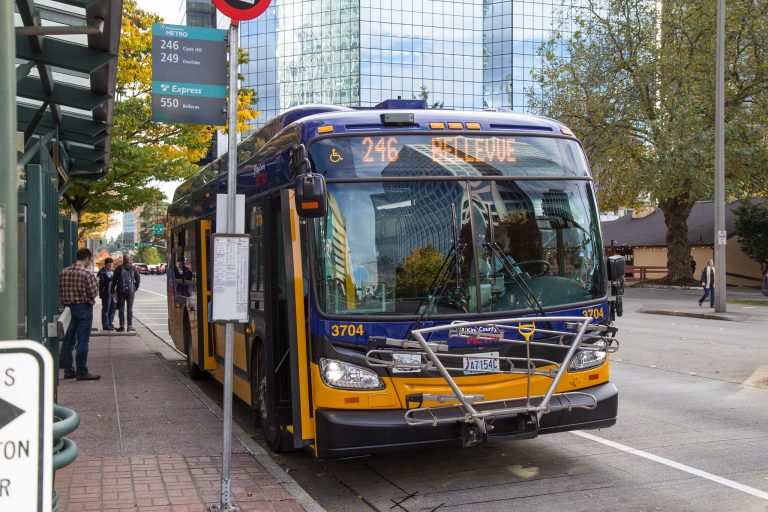Published on March 30, 2023

University of Washington researchers are working with Pacific Northwest transit agencies to study whether illicit drug use on buses and trains may affect air quality in the vehicles.
The research team is collecting samples and assessing airflow on buses and trains this spring in a first-of-its-kind study to address concerns about increased use of fentanyl and other drugs and whether their use on transit vehicles may lead to secondhand exposures.
The findings could lead to improvements in air flow, cleaning protocols and filters on buses and light rail to better protect drivers, said Marissa Baker, study leader and assistant professor in the Department of Environmental & Occupational Health Sciences (DEOHS).
The research is part of a multi-agency effort in Washington and Oregon with partner agencies that include King County Metro, Sound Transit, Community Transit, Everett Transit and TriMet in Portland. The Amalgamated Transit Union representing transit drivers is also actively involved.
“It’s important to investigate emerging occupational hazards and to understand how smoke generated on a bus or train could impact the operator,” Baker said.
Continue reading at DEOHS.
Originally written by Jolayne Houtz for DEOHS.